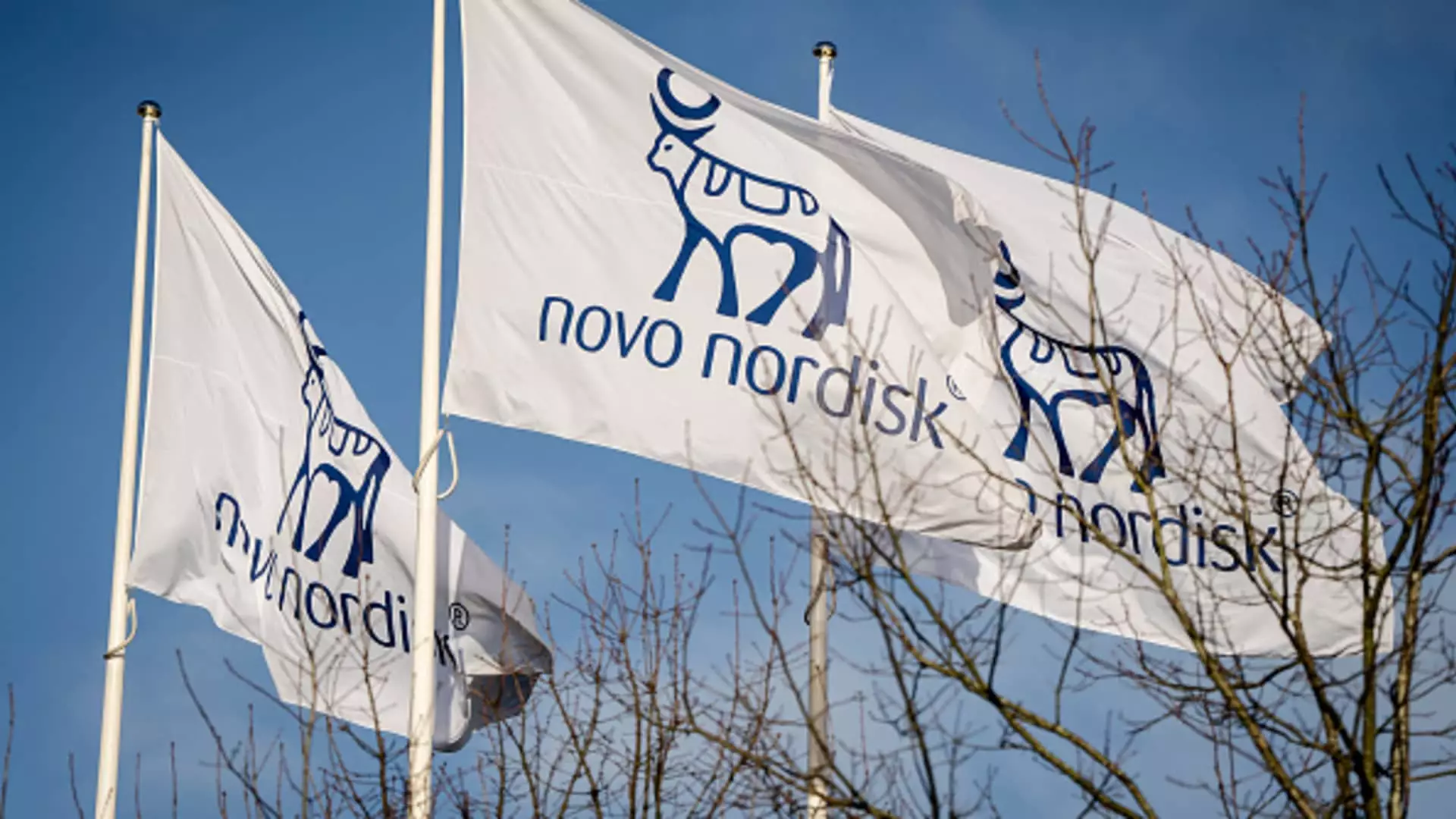14% Reduction in Cardiovascular Risks: The Transformative Potential of Rybelsus

As the global health crisis surrounding diabetes continues, recent developments in medication bring a glimmer of hope. Novo Nordisk’s oral diabetes medication Rybelsus has presented compelling evidence of its cardiovascular benefits that could redefine treatment protocols for patients with diabetes and heart disease. This revelation, unveiled during the American College of Cardiology’s Annual Scientific Session, highlights the drug’s capability to lower the risk of serious cardiovascular events by an impressive 14% compared to traditional placebo treatments. Such statistics do not merely represent numbers; they embody the potential to save lives and drastically pivot the treatment paradigm for countless patients hesitant about injections.
Why Rybelsus Stands Out
While many pharmaceutical companies dabble in diabetes treatment, Rybelsus differentiates itself through its form and efficacy. As an oral medication, it stands as a beacon for individuals who grapple not just with diabetes but also with an aversion to needles. For patients who experience anxiety or discomfort at the thought of injections, the availability of Rybelsus could remove substantial barriers to treatment adherence. Stephen Gough, Novo Nordisk’s global medical chief, encapsulated this sentiment eloquently, emphasizing that patient preference should guide the conversation between healthcare providers and patients. This approach underscores a crucial point in modern medicine: the importance of patient-centric treatment solutions.
The Astonishing Results of the Trial
The parameters of the recent trial were extensive, involving over 9,600 participants aged 50 and older, who were closely monitored over four years. A noteworthy aspect is that nearly half of these individuals were also taking SGLT2 inhibitors—medications designed primarily for glucose management—indicating that Rybelsus can effectively coexist with other treatments. Statistically, the trial revealed a stark contrast in outcomes: just 12% of those on Rybelsus faced cardiovascular events versus 13.8% on placebo. The implications of these findings are profound, backed by similar results seen in previous studies focused on injectable GLP-1 medications.
The drug also emerged as particularly beneficial for those at risk of non-fatal heart attacks, recording a remarkable 26% reduction in such incidents. This specific metric not only reflects the drug’s potential impact on patient health but also reinforces the argument for expanding treatment options available to those wary of injections.
Addressing the Side Effects
As promising as Rybelsus appears, it is essential to approach its rollout with a balanced perspective. The trial noted gastrointestinal disturbances among users, such as nausea and diarrhea—side effects that, while consistent with other GLP-1 medications, merit consideration in treatment discussions. Ensuring that patients are adequately informed about these possibilities is crucial. The challenge lies not just in the drug’s efficacy but also in how well it can be tolerated. Patients should feel empowered to make informed choices that suit their unique health needs.
Shifting Landscape of Diabetes Treatments
The announcement of Rybelsus’ benefits comes during a pivotal time when several drug manufacturers, including Eli Lilly, are advancing oral GLP-1 alternatives. This burgeoning competition confirms an essential truth: the shift towards accessible oral medications is not merely a trend but rather a necessary evolution in diabetes care. As physicians and healthcare professionals become increasingly adept at identifying patient-specific needs, the availability of diverse treatment modalities will allow for more personalized and effective management of diabetes and its associated risks.
A Broader Perspective
Despite the intricate details of this research, it’s crucial to understand the broader implications of Rybelsus. Heart disease remains a leading cause of death for those with diabetes, especially among older adults. An oral medication that can effectively mitigate such risk provides more than just an alternative; it offers a pathway toward a more holistic approach to chronic disease management. Given that nearly half of the trial participants were also undergoing treatment for kidney complications, the lack of significant differences in kidney function outcomes may signal the need for further investigational studies.
Adopting Rybelsus into therapeutic protocols could certainly change the landscape of patient care and survivability rates among those facing dual diagnoses. As healthcare systems continue to grapple with treating chronic conditions cost-effectively, the health benefits stemming from innovations like Rybelsus could lead to significant public health improvements rather than just incremental changes.
The interplay between innovative treatments, patient choice, and informed decision-making could well signify a new chapter in combating diabetes and its related cardiovascular dangers, a prospect that holds profound promise for both patients and healthcare providers alike.





